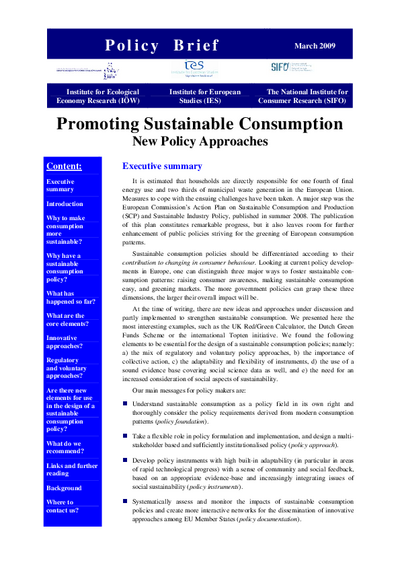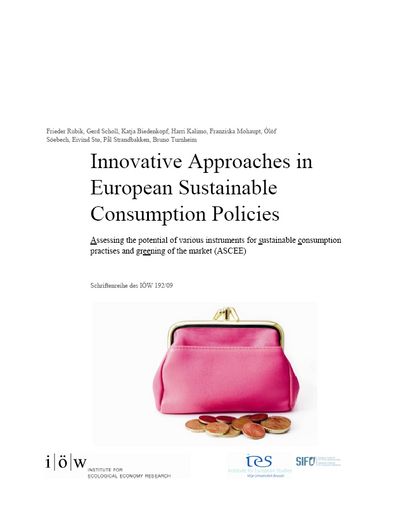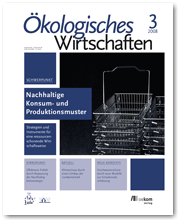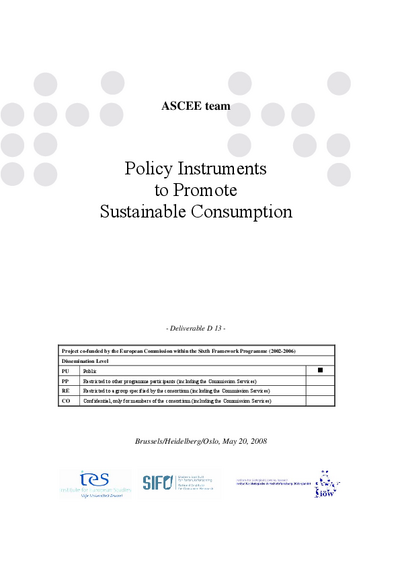Assessing the potential of various instruments for sustainable consumption practices and greening of the market (ASCEE)
Sustainable consumption is a much-discussed topic. To ensure that things move beyond the level of discussion and knowledge of sustainable action also penetrates to the consumers, functional instruments for integrating knowledge and behaviour are required. The project ASCEE studied the sustainability potential of various instruments for promoting sustainable consumption and greening markets.
The main objectives were:
- to identify, structure and assess innovative instruments and strategies for promoting sustainable consumption and greening markets;
- to identify and assess best practices and to develop political strategies for their wider dissemination and transfer;
- to conduct a workshop;
- to devise a handout for political protagonists.
The project was carried out in three phases. After a preliminary phase, the first phase consisted of analysing political instruments, measures and actions and condensing them into a basic instrumental overview. This overview was to bring together insights into existing, discussed, proposed but also rejected instruments which (might) have the potential to contribute towards a greening of markets and sustainable consumption. We concentrated on promising and innovative instruments and approaches. The instrumental overview was assessed according to criteria such as effectiveness, efficiency, acceptance, flexibility and competitiveness. The most instructive examples were subjected to deeper analysis with regard to their applicability and transferability. The key question was what patterns and contextual framework conditions exist to disseminate sustainability strategies.
The second phase of the project focused on transferability and dissemination of the findings. Based on the results of the first phase, we elaborated strategies for the transfer of promising approaches and instruments. Our proposals were presented to a wider audience at a one-day workshop in Brussels in autumn 2008. The discussion and results of the workshop will be documented and drawn upon when revising the previous proposals. The project will conclude with the devising of a kind of handout for political protagonists and a final report.
IÖW Project Team
- Franziska Mohaupt
- Dr. Frieder Rubik (Project leader total)
- Dr. Gerd Scholl







